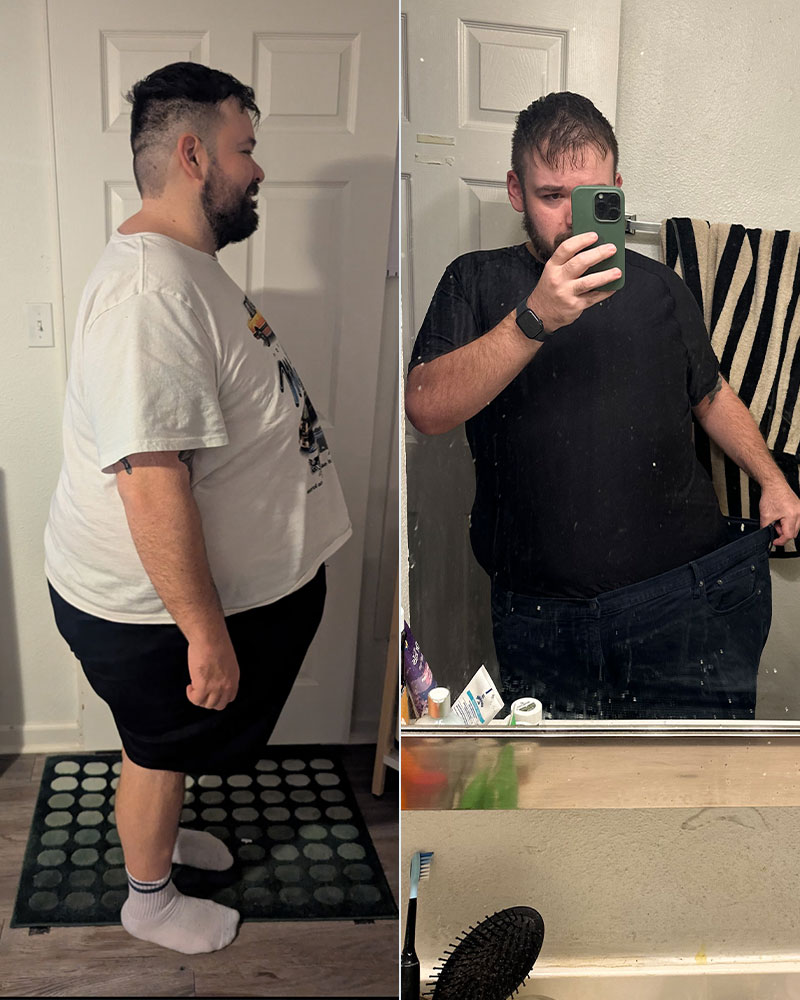Navigating Long-Term Weight Management
Which Path is Right for You?
For individuals grappling with obesity and its associated health risks, both bariatric surgery and weight loss medications offer promising avenues for significant weight loss and enhanced well-being. Making an informed choice between these two options requires a detailed understanding of their benefits, drawbacks, and long-term implications. This article aims to compare these two weight management approaches side by side, providing insights to help you decide the best approach for your health journey.
Weight Loss Potential
Bariatric Surgery
Widely regarded as more effective for substantial weight loss, bariatric surgery, including procedures like gastric bypass and sleeve gastrectomy, can lead to a loss of 60-70% of excess body weight. Long-term studies often show sustained success in weight management for many patients.
Weight Loss Medications
GLP-1 receptor agonists, the most effective class of weight loss medications, can promote a 15-20% total body weight loss. While this level of weight loss may be sufficient for some, results often plateau, and weight regain is common after discontinuing the medication.
Impact on Health
Bariatric Surgery
Frequently results in significant improvements in obesity-related conditions such as type 2 diabetes, sleep apnea, and high blood pressure. These improvements can greatly enhance overall health and quality of life.
Weight Loss Medications
GLP-1 agonists can improve diabetes control, but the effects might not be as pronounced as those seen with surgery. The impact on other conditions varies, and common side effects include gastrointestinal issues like nausea, vomiting, diarrhea, and constipation.
Lifestyle Changes
Both bariatric surgery and weight loss medications require significant lifestyle changes for long-term success. This includes adopting a healthy diet, increasing physical activity, and developing sustainable habits.
Procedure and Reversibility
Bariatric Surgery
A major surgical procedure with inherent risks, including infection and bleeding. The procedures are irreversible and require a significant commitment to lifestyle changes post-surgery. The length of bariatric surgery depends on the type of surgery procedure and can range between one to four hours.
Weight Loss Medications
Non-invasive and generally well-tolerated, though side effects such as nausea, fatigue, and gastrointestinal issues are common. Medications can be discontinued, but weight regain is likely. This option currently requires a person to be on the medication for life.
Side Effects of Bariatric Surgery
Bariatric surgery can have various side effects depending on the type of procedure and the individual’s health. Schedule an appointment with one of our bariatric surgeons to determine the most suitable procedure for you and to assess your overall health.
Side Effects of Weight Loss Medications
Common Side Effects
Nausea, vomiting, diarrhea, constipation, stomach pain, bloating, fatigue, injection site reactions, allergic reactions, belching, hair loss, heartburn, and inflammation of the pancreas.
Serious Side Effects
Increased heart rate and blood pressure, changes in mood, including anxiety and depression, and rare allergic reactions requiring immediate medical attention.
Managing Side Effects from Weight Loss Drugs
To manage the side effects of weight loss medications, users can take several proactive steps:
- Begin with a lower dose and gradually increase it.
- Stay hydrated.
- Eat a balanced diet rich in fiber.
- Attend regular check-ups with healthcare providers.
Long-Term Considerations
Ongoing research is needed to fully understand the long-term effects of new weight loss medications. Users are encouraged to stay informed about new findings and participate in regular check-ups with healthcare providers.
Choosing the Right Option
The decision between bariatric surgery and weight loss medications depends on individual circumstances, including the severity of obesity, medical history, and lifestyle readiness. Consulting a qualified healthcare professional is crucial for determining the most suitable weight management strategy.
At Capital Surgeons Group, we specialize in providing comprehensive weight management solutions, including bariatric surgery and guidance on weight loss medications. Our experienced professionals are dedicated to helping you choose the right path for long-term weight management and improved health. Contact us today to schedule a consultation and start your journey towards a healthier life.
Real People, Real Results
Hear How Weight Loss Surgery Changed Their Lives
Learn More about Weight Loss Medications Side Effects
Bariatric “Weight Loss” Surgery: What You Need to Know
Your Authority in
Weight Loss Surgery
Discover the latest procedures and research on new weight loss drugs. Capital Surgeons Group provides expert weight loss solutions with advanced laparoscopic surgery and personalized care. [...]
Bariatric Surgery vs.
Weight Loss Drug
Explore Bariatric Surgery vs. Weight Loss Medications. Surgery offers greater weight loss and health benefits, but is invasive. Medication is easier on the body but has side effects and less weight loss. A doctor can help you choose the best option based on your needs. [...]
Long-Term
Weight Loss Solutions
Learn about the power of surgical weight loss, including the three laparoscopic weight loss surgery options, the top four benefits of weight loss surgery, and whether bariatric surgery is right for you. Discover how to embrace a healthier lifestyle post-surgery. [...]
Prepare for
Weight Loss Surgery
Preparing for weight loss surgery is essential for a positive outcome. Here are some important steps to take, including consulting a healthcare professional, researching the different types of surgery, making dietary and lifestyle changes, and building a strong support system. [...]
Benefits of
Weight Loss Surgery
Weight loss surgery can lead to significant and sustained weight loss, improved obesity-related health conditions, enhanced quality of life, and long-term health benefits. Learn more about the benefits of weight loss surgery today and consult with your healthcare professional to see if it's right for you. [...]
Am I a Candidate
for Bariatric Surgery?
Find out if you're a candidate for bariatric (weight loss) surgery. Learn more about the key factors that healthcare professionals consider, including BMI, weight loss attempts, health issues, psychological well-being, commitment to lifestyle changes, and more. [...]
What is Bariatric Surgery?
Discover the life-changing benefits of bariatric surgery, including weight loss, improved health, and increased self-confidence. Explore the various types of procedures, from sleeve gastrectomy to gastric bypass, and learn what to expect before, during, and after surgery. [...]
Bariatric Revision Surgery
Learn about Bariatric Revision Surgery and Adjustable Gastric Band Removal. Explore the procedure details and the compelling benefits of these weight loss solutions. [...]
Duodenal Switch “SADI”
Explore the transformative Duodenal Switch procedure, also known as SADI, and discover how it can positively impact your health. Learn about the benefits, risks, and post-operative care involved in this weight loss surgery. [...]
Gastric Bypass Surgery for
Effective Weight Loss
Gastric bypass surgery is a highly effective weight loss procedure that can help you achieve significant and lasting weight loss. Discover how this life-changing surgery can improve your health and overall well-being. [...]
Sleeve Gastrectomy
Changes Lives
Learn more about the benefits of sleeve gastrectomy and how we use the da Vinci robotic surgery system to provide our patients with the best possible care. [...]




















